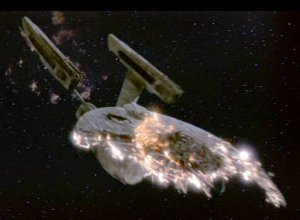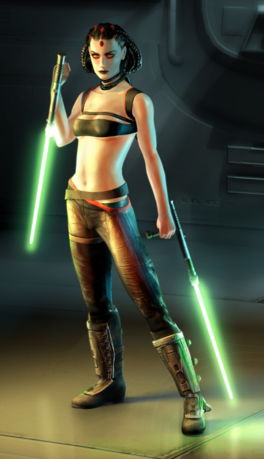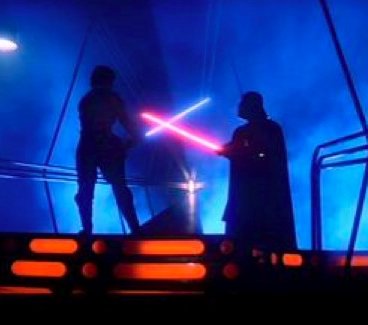Last night I witnessed the final hours of an MMORPG.
Several years ago, I read this fascinating account of the last days of Asheron’s Call over at Wired. That article, and this strangely touching collection of quotes and screenshots from the game’s final minutes, has stuck with me ever since. What does a doomed MMORPG look like in its twilight hours? Is it a barren wasteland devoid of players save for a faithful few long-timers mourning the game’s passing? A madhouse of activity as thousands of gamers crowd into the game to experience it before it goes away forever?
So when word came out late last year that Tabula Rasa was going offline in February (and more importantly, that its last few months would be free to play), I knew I had to at least check it out. My original intent was to play the game fairly heavily throughout February, trying to experience as much of it as possible before the end. Unfortunately, reality (and house maintenance, parenting responsibilities, the lure of other games) shot down that dream. Nevertheless, I wanted to be there for the game’s final few hours, especially when I read that the TR developers were planning to shut down the game with an apocalyptic in-game event.
The bad guys of the TR universe were going to launch an all-out assault, and everyone was going to die. The cities and bases that players had gotten to know over the last year were going to fall. Players would be pushed back to Earth for a final stand. At least TR players could go down in a blaze of glory.
So last night I logged into TR for the game’s final hours. I didn’t stay to the bitter end (1am my time; I didn’t think my church choir director would appreciate me showing up to the service crashing from a Mt. Dew-fueled late night gaming). But I was online for 2-3 hours up to about midnight.
So what was it like?
It was interesting.

Players gather to hold back the invaders as long as possible.
There were a few problems. First, the game was crowded. For the first hour or so of the final event, the game was nearly unplayable due to lag. (Some players joked that the Bane apparently planned to defeat humanity by bringing their servers to a halt through lag.) From what I gathered in the in-game chat, a lot of players from TR‘s European and other servers (which had shut down earlier in the day) had flocked to this, the last online server, to replay the end again. Throw in who-knows-how-many curious observers like myself, and you had one crowded gameworld. The lag problem eased as the night went on.
Another problem was my lack of familiarity with the game. I’d only played a few hours throughout February, so I had only a basic grasp of how to travel around the game universe. It took me a while just to figure out how to travel to the “frontlines” where the invasion was expected to begin. Also, there was the little matter that my level 5 newbie character was probably going to last about 2 seconds against the sorts of epic alien invaders that were coming to destroy the world. (This did, in fact, turn out to be the case.)

I don't think my level 5 character is a match for these walkers.
But it was nevertheless a worthwhile experience. The invasion kicked off at 9pm Eastern time. In the hour leading up to the invasion, the in-game chat was so abuzz with chatter that I could hardly read messages before they scrolled off the screen. The game developers were present and participating actively in the chat. It was fascinating to read, with the same questions coming up over and over again:
- Where was the final stand taking place? How do I get there so that I, too, can take some alien scum down with me?
- Who’ll group up with me to visit [cool game location] or do [cool game quest] before it goes away forever?
- Can the developers make me level 50 so I can slog it out against the invaders in the final stand? (A rumor was flying that developers were levelling people up to level 50 upon request. I did see one developer saying he’d do this if people asked him, so apparently it was happening.)
- Lots of people thanking the game developers for creating the game and making it a fun world to play in.
- People trying to sell in-game objects for high fees. (Capitalists to the end!)
- People hatching crazy and impractical schemes for “saving” TR.
- A lot of people whining about the lag. (Geez, people….)
- A lot of people discussing which MMORPG they’d be moving to after the end of TR.
Then the end began. At 9pm reports started rolling in from players in various bases throughout the game world: the attack was underway. Aliens—big aliens, allegedly controlled by the developers themselves—were hitting bases. The chat started to fill with calls for assistance, players trying to rally others to defend important locations, other players calling out sightings of the ultra-powerful Neph (the Big Bad Guys).

Heading out to the frontlines.
One by one, player bases fell and became inaccessible. Players made plans for a final stand on Earth.
And I had to log off.
All in all, it was a curiously touching experience, even for somebody like me who had no emotional tie to TR, its gameworld, or its community of players. TR wasn’t the empty wasteland that Asheron’s Call apparently was; a lot of people showed up for its final moments. There wasn’t a sense of a tight-knit community dying forever, although it was clear from the chats that people had formed friendships with other players and with the developers. One imagines that, in 2009, it’s pretty easy to relocate to another MMORPG when your favorite one goes offline. But there was still an edge of sadness as the bad guys swept through the game universe, shutting it down as they went.
All in all, it was a classy way to end a game. I hope TR‘s players and developers both enjoyed their final fling with the game. Let it not be said that TR didn’t go out with a bang.

It was a beautiful world, while it lasted.
[Note to Tabula Rasa veterans: if I got any of the details here wrong, I apologize—I’m just going by what I was able to gather from my few hours of play yesterday.]




 by
by 





 What’s the first thing you notice about this image, from an upcoming game called
What’s the first thing you notice about this image, from an upcoming game called 
